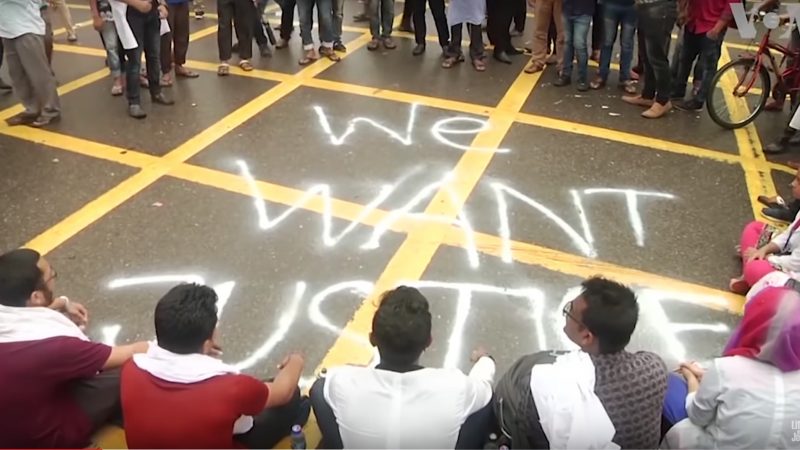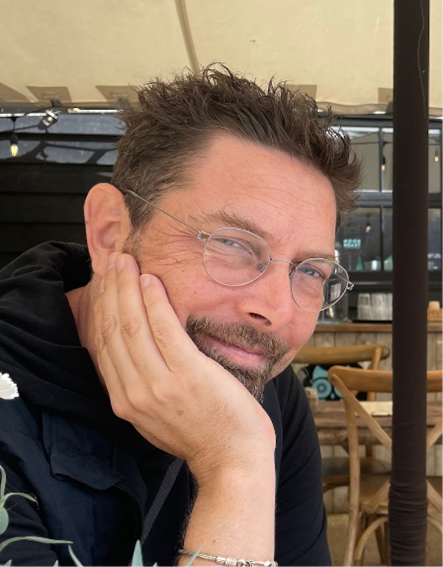

FCDO governance guru/wonk (gonk?) Ben Powis reflects on some of the whiplash moments he’s experienced in multiple countries.
Moments in history come in many forms – and I have seen a few. The 2015 earthquake in Nepal, the 2021 coup in Myanmar, a new government in Zambia in 2021, and the COVID-19 pandemic, well…everywhere.
Bangladesh is experiencing one such moment now. While every moment is different, they share a common theme of disruption. Politics are rapidly unsettled. Institutions are in turmoil. Power dynamics are in flux, and the rules of the game are up for grabs. In all cases, expectations (and often promises) for ‘big change’ are high. But can these moments be a chance for genuine reform?
The short answer is yes – but only if we change the way we work. This means taking the concept of agility and ‘thinking and working politically’ to a new level. This is harder than it should be, not least because these times of crisis leave a significant impact on people and programmes, which makes it hard to step back and think strategically. Creating the space to do so is vital to ensure that we don’t try and proceed with ‘business as usual’ or implement plans created in a different era which run the risk of turning irrelevant in the new context.
Some guiding principles to thrive in such opportune moments:
- Storming and Norming: The initial stage of a disruption is a unique moment when ‘it’s all up for grabs’. No one has a plan; power is unclear and the space for ‘good ideas’ is open. But this space closes fast and it is important to use it well. Getting in early, listening and making ourselves useful should be our primary objective.
- Spreading the net wide: Crisis breeds new players – often people we have not been working with before. Student movements and community organisations emerge and change our understanding of civil society. New advisers take centre stage. It is not clear who will hold power and influence in future but taking the time to engage broadly (beyond the ‘usual suspects’) is both a way to get a finger on the pulse and build relationships that can endure.
- Deliver fast: A lot needs to be done, and often the centre of power will struggle to deliver. Being ready and able to act on requests – even when they fall outside our programme – is important to cement the relationships and build trust. Two-page policy think pieces produced in 24 hours (hand delivered and unbranded) really work!
- Communications and expectation management: A constant theme in these times is weakness in messaging… where silence builds tensions. Any support towards this can go a long way – and there is normally appetite. I am often struck by how neglected and important policy communication is – and that it remains outside the traditional areas of support.
- Embracing risk: Working in a crisis or transition means taking risks. Political changes often come with retribution or challenges to legitimacy and there is a new level of volatility. Setting out these risks early and increasing the ‘battle rhythm’ of monitoring and reflection can help in taking on these risks.
- Prioritisation and delivery: Unsettled politics often limits the capacity to deliver. Institutions (and people) take time to adapt to calling for rapid options on defined priorities. Prioritisation often proves a to be a challenge and institutional changes are protracted – which make it hard to deliver even on ‘quick wins’. Understanding and working with these challenges is essential.
Diving into a moment in history can yield real opportunities – but only if we take the idea of agility and ‘thinking and working politically’ to a new level. In the first instance, this means becoming a part of the ‘storming and norming’ phase and adjusting our approach to work with fluidly and searching for opportunities. But the last lesson is key – moments in history are rarely linear. They drag on. Often it takes years to settle into a new order – and this order will be based on enduring contests. Seizing the moment is important, so is being prepared for the long haul. Supporting the pathway from transition to reform means doing both well.
Ed: And here’s how not to respond to a moment in history – the legendary fitness trainer video from Myanmar, blissfully unaware of the coup going on behind her
Nice one Ben. You certainly have some experiences you can draw upon!
I’ve developed what I called the “opportunistic” or “windows of opportunity” theory of change against what I started to call “impervious regimes” (in ex-Communist countries) which had become so confident of the lack of challenge to their rule that they were impervious to their citizens. Initially I expressed it like this –
• “Windows of opportunity present themselves – from outside the organization, in crises, pressure from below
• Reformers have to be technically prepared, inspire confidence – and able to seize and direct the opportunity
• Others have to have a reason to follow
• the new ways of behaving have to be formalized in new structures.
“Most of the time our systems seem impervious to change – but always (and suddenly) an opportunity arises. Those who care about the future of their society, prepare for these “windows of opportunity”. And the preparation is about analysis, mobilisation and trust.
· It is about us caring enough about our organisation and society to speak out about the need for change.
· It is about taking the trouble to think and read about ways to improve things
– To help create and run networks of such change.
· And it is about establishing a personal reputation for probity and good
judgement
· that people will follow your lead when that window of opportunity arises”.
On reflection, there may be too much of a Leninist touch to this formula!
In these days of “systems and chaos theory” we probably require a bit
more humility – and flexibility.
Very useful Ben – thank you!
Responsible effective leadership entails looking out for others particularly those peoples lacking voice as this ethos delivers thriving people concomitant with inspirational results.
Ideally, a workplace should be transparent, inclusive, fun enlivening.
30+ years field exposure in development aid assistance in regions post conflict forced me to recognize just how difficult it is to be a responsible political development aid assistance decision-maker with the liminal information one has— not least as no-one is in control of all events development epistemically.
Extensive development experience directs me to this singular consideration—local people can make a difference.— Clear salient is freedom in open choice constitutes a necessary pre-condition for action of peoples to promote their interests.
Focus on institutions is crucial however should not be based on universal or Western templates, but hybrid forms, adapted to local conditions and cultures. Obstacles intense exist for development in unclear overlapping ambiguous institutional mandates, incoherent policies and wrong or even perverse incentives—problems which can be addressed through local flexible programs involving peoples at the grass roots level encouraging an open democratic form of development trenching supported sustained by these local peoples.
Political freedom is not—you do whatever you wish—Inherent in freedom is that your freedom is limited by the need to maintain and enhance other people’s freedom.
Inherent in freedom is social civic civil responsibility.
The normative choice for freedom is inherently social as freedom implies we make political and policy choices and formulate laws that may limit our own freedom in order to protect or enhance the freedom of other individuals in our society.
Freedom implies that our political institutions facilitate collective action and create the right incentives to further social goals. Attempts to violate human freedom in the name of some higher goal, whether socialism, nationalism or developmentalism, have usually migrated into policies of discrimination, ethnic cleansing and violation of individual rights.
Crucial is the importance of freedom, broadly conceived inherent in any kind of democratic development program.